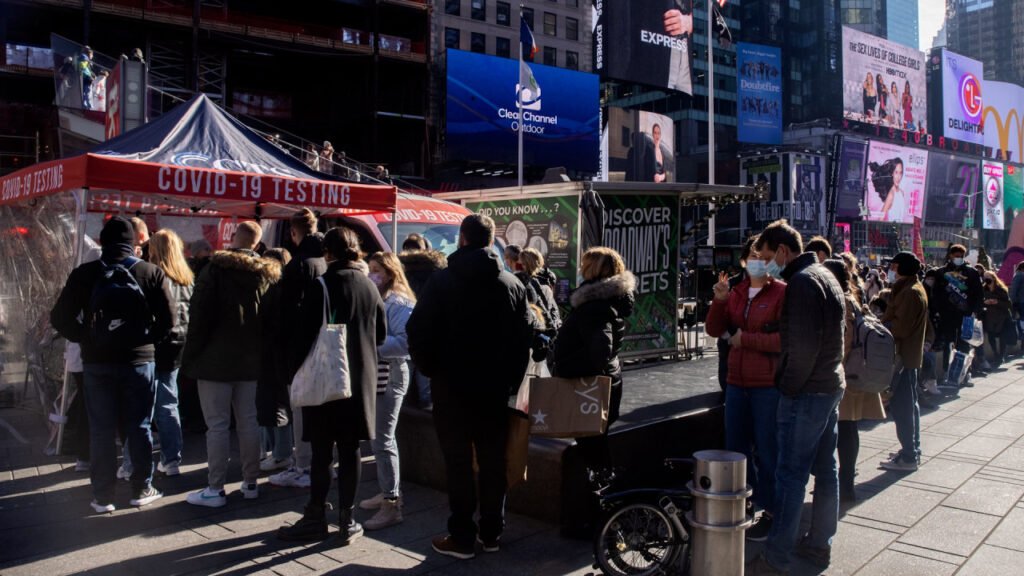While it is increasing in other countries, life expectancy is still falling in the US
Federal health experts announced that the United States’ average life expectancy had fallen to 76 years for the second year in a row, an almost unheard-of occurrence. During the second year of the pandemic, after the introduction of vaccines, life expectancy rose in many nations throughout the world, but not in the United States.
Typically, death rate information within each age group is used to calculate life expectancy at birth, or how long a person is predicted to live assuming nothing else changes in the world. Therefore, even though life expectancy doesn’t forecast how long a kid born today will live .
The figures for 2019 and 2020 are definitive, however the projections for 2021 are based on tentative death rates. It is typical for the findings of each estimate to differ slightly because each one considers a distinct set of variables. According to a social demographer at the University of Colorado Boulder the mortality rate estimates are lower than those of the CDC (The Center for Disease Control and Prevention ) since the preprint took into account the older populations’ quick adoption of Covid-19 vaccinations.

Despite the fact that practically all wealthy nations have recovered from reduced life expectancy in the first year of Covid, all estimations indicate that life expectancy in the US has been declining ever since. A senior scholar in the Health Policy Center at the Urban Institute asserted that though US is one of the richest countries on the face of the planet but we have failed miserably as we are unable to use our financial resources to safeguard our population and guarantee that everyone has an equal opportunity to live a long, healthy, and productive life.
Why life expectancy is drastically declining
Prior to the epidemic, the world’s life expectancy was steadily increasing, adding a few months each year. However, there were already alarming signs for the US in that situation. A few years ago, a rise in mortality from various ailments, such as heart failure and stroke, caused the US life expectancy to decrease by nearly a month.
That decline is insignificant in comparison to the three-year loss we’ve observed since Covid-19.
The United States and Israel were the only two wealthy nations whose life expectancy continued to fall in 2017. While hundreds of thousands of premature deaths occurred in the majority of nations during the first year of Covid-19, once vaccination rates started to increase, almost all of the 21 countries’ life expectancies either stayed the same or started to grow once more, with many reaching their pre-pandemic levels.
Pre-Covid life expectancies in the US were lower than those of other wealthy nations like South Korea, France, and Australia. Despite spending astronomical sums on healthcare, the United States consistently outperforms other nations in terms of health outcomes. citizens in the US had to deal with the opioid addiction, gun violence, and higher rates of chronic diseases than citizens in other wealthy nations even before the pandemic.
According to analysts, the US’s failure to recover from Covid can be attributed to many of the same fundamental reasons. According to a professor of demography and public affairs at Princeton University, the impacts of Covid-19 were worsened by a lack of health access and a strong public health care system, the other contributing factors to the US’s worse performance than other comparable nations include a lack of national coordination to fight the epidemic and lower vaccination rates.

According to a demographics researcher at the University of Southern California, there were more young people dying from Covid-19 in 2021 than there were in 2020. Despite the fact that age is still the greatest risk factor, unvaccinated middle-aged adults are dying at a higher rate. Furthermore, she noted that high rates of chronic illness, obesity, and diabetes had not yet had an impact on mortality rates, but when Covid-19, a disease with these risk factors, appeared, “it was like lighting a match.”
Groups that are already at risk have been disproportionately affected by COVID-19.
Some communities in the United States have been more severely impacted by Covid-19 than others. Life expectancies for various demographic groups were drastically different even before the epidemic because of structural issues such as poor access to healthcare. Black men had a 10-year shorter average life expectancy in 2019 than white women did.
According to one of the co-authors of the preprint, “Health travels along with economic well-being, housing stability, and food security,” and these conditions are mostly influenced by systemic problems.
Even before the pandemic, factors that contributed to death, such as air pollution, disproportionately affected people of color; because of racist practices like redlining, black Americans are more likely to reside in areas with poorer health outcomes. Native Americans already had high rates of poverty, unemployment, a lack of water infrastructure, underlying health risk factors, and poorer-quality, harder-to-access healthcare.
This gap was significantly worse by Covid-19.
Black Americans died from COVID-19 at a rate that was twice that of white Americans in 2020. The latest figures from the CDC (The Center for Disease Control and Prevention ) show that while life expectancy has decreased for all demographic groups, deaths have increased among Native Americans, Black Americans, and Hispanic Americans.
In addition, men across all racial/ethnic groups lost more life expectancy than women. This was most likely caused by a variety of causes, including the fact that males were more likely to work in occupations where they would be exposed to the disease, behavioral variations in hand-washing and vaccination rates, and biological factors.







